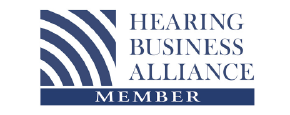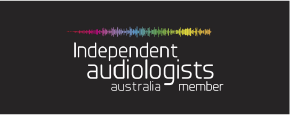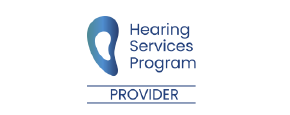Are you looking for a hearing test in Shorncliffe?
Are you having difficulty communicating? Our expert audiologists at Hearing Help can help improve your hearing clarity. Book your consultation today and reconnect with the sounds and people you love!
Hearing Test in Shorncliffe Brisbane
Are you looking for Hearing Test in Shorncliffe Brisbane? We are conveniently located within the Newport Physio and Health clinic at Newport Marketplace. Hearing Help provides comprehensive hearing tests conducted by a dedicated team of audiologists and hearing specialists. Utilising the latest technology, they diagnose and manage hearing loss, offering exceptional patient care. A hearing test assesses sensitivity to sounds of varying frequencies and volumes, and results are used to inform treatment recommendations. Various types of hearing tests are conducted, including pure tone audiometry and speech audiometry. By understanding the hearing test process and its importance, individuals can take the first step towards addressing hearing difficulties. Further exploration of the process can reveal the benefits of proactive hearing health management.
About Hearing Help
Building on years of experience and a commitment to delivering exceptional patient care, Hearing Help has established itself as a trusted provider of audiological services for the community of Shorncliffe, Brisbane. Our team of dedicated audiologists and hearing specialists are passionate about helping individuals with hearing difficulties, providing personalised care and support every step of the way. We understand the significant impact that hearing loss can have on daily life, social interactions, and overall well-being.
At Hearing Help, we are equipped with the latest technology and diagnostic tools to detect and manage various types of hearing loss. Our comprehensive range of services includes hearing tests, hearing aid fittings, and ongoing maintenance and support. We also offer education and counseling to help individuals and their families adapt to hearing loss and optimise their communication skills. Our goal is to empower our patients with the knowledge and tools necessary to effectively manage their hearing health and improve their quality of life. By doing so, we aim to make a positive difference in the lives of those we serve.
Why Choose Hearing Help?
Hearing Help provides hearing services in the surrounding areas of Newport 4020 Brisbane, delivering comprehensive care to the local community. They offer a range of services including hearing assessments for adults and children, tinnitus assessments, auditory processing assessments, earwax microsuction, and hearing aid fittings. This independent audiology practice is accredited under the Hearing Services Program and the Department of Veterans Affairs, ensuring eligibility for subsidised hearing tests and devices for eligible clients.
Importance of hearing health and regular hearing tests
Maintaining good hearing health is crucial for our overall wellbeing and quality of life. Our ability to hear plays a significant role in how we communicate and interact with others, and any impairment can lead to feelings of isolation and disconnection. Regular hearing tests are essential in identifying any issues early, allowing for prompt treatment and preventing further damage. As we age, our hearing naturally declines, and being proactive about our hearing health can make a significant difference in our ability to stay connected with loved ones and engage in everyday activities. Furthermore, some hearing problems can be indicative of underlying health conditions, and regular tests can help detect these issues before they become major concerns. By prioritising our hearing health and scheduling regular tests, we can take a proactive approach to protecting our overall wellbeing.
What is a Hearing Test?
To effectively prioritise our hearing health, it is important to understand what a hearing test entails and how it can help identify potential issues with our auditory system. A hearing test, also known as an audiometry test, is a diagnostic evaluation designed to assess the sensitivity of an individual’s hearing. The primary purpose of a hearing test is to measure the ability of the ear to detect sounds of varying frequencies and volumes.

Conducted by a trained audiologist or healthcare professional, a hearing test typically takes place in a quiet room or sound booth to minimise external noise. The results of a hearing test are plotted on an audiogram, a chart that visualises the listener’s hearing threshold in comparison to established norms. The data obtained from a hearing test allows healthcare professionals to identify hearing loss or impairment, determine the severity of the issue, and inform recommendations for treatment or corrective measures.
Types of Hearing Tests
Several specialised assessments are utilised in evaluating an individual’s auditory system, each designed to gauge specific aspects of hearing. These assessments allow audiologists to identify the type, degree, and configuration of hearing loss, as well as monitor the effectiveness of treatments.
Pure Tone Audiometry is a fundamental assessment that measures an individual’s hearing threshold in response to sounds of varying frequencies and intensities. Speech Audiometry evaluates one’s ability to understand and process speech. Middle Ear Function Tests assess the integrity of the middle ear system, including the eardrum and ossicles. Acoustic Reflex Testing measures the stapedius muscle’s response to loud sounds, providing insight into auditory function. Otoacoustic Emissions (OAE) testing evaluates the inner ear’s ability to generate low-level sounds in response to stimulation. Auditory Brainstem Response (ABR) testing assesses the neural pathways of the auditory system. Bone Conduction testing evaluates an individual’s ability to hear sounds transmitted through the skull. These assessments provide a comprehensive understanding of an individual’s auditory system.
Preparing for Your Hearing Test
As you prepare for your hearing test, it’s essential to understand what to expect from the process. From arrival to completion, our hearing test is designed to be a comprehensive and straightforward assessment of your hearing health. In this section, we will outline the duration of a typical hearing test and provide valuable tips to help you prepare and make the most out of your appointment.
What to Expect
Prior to your scheduled hearing test, it is essential to understand the assessment process to ensure you are adequately prepared and know what to expect during your appointment. A comprehensive hearing test is designed to evaluate your overall hearing health, identify any potential issues, and provide a foundation for further treatment or management. The assessment will typically involve a combination of visual examinations, audiometric tests, and speech assessments to gauge your hearing thresholds, speech recognition, and middle ear function.
It is crucial to be aware that the hearing test may involve some loud sounds, but these will be carefully controlled and monitored by the audiologist to prevent any discomfort or harm. You will also be asked to provide your medical history, including any previous ear problems, hearing difficulties, or related conditions. By understanding what to expect, you can feel more at ease and prepared to undergo the assessment, allowing you to receive accurate results and effective recommendations for your hearing health.
Description of the process from arrival to completion
Upon arrival a friendly staff member will greet you and guide you through the necessary paperwork and procedures to ensure a smooth and efficient hearing test process. You will be asked to provide some basic information, such as your medical history and contact details. This information will help our audiologists to tailor the test to your specific needs and provide accurate results.
Next, you will be introduced to our experienced audiologist, who will explain the test process and answer any questions you may have. They will then conduct a visual examination of your ears using an otoscope to check for any signs of wax buildup or other obstructions. This is followed by a series of hearing tests, including pure-tone audiometry and speech audiometry, to assess your hearing range and speech recognition. Throughout the process, our audiologist will provide you with clear explanations and ensure that you are comfortable and informed.
Duration of a typical hearing test
Typically, a comprehensive hearing test at our hearing clinic lasts around 30-60 minutes, depending on the complexity of the test and the individual’s specific hearing needs. This timeframe allows our audiologists to conduct a thorough examination of an individual’s hearing, identifying any potential issues and providing personalised recommendations.
During the test, our experienced audiologists will assess various aspects of an individual’s hearing, including pure-tone thresholds, speech recognition, and middle ear function. During the pure-tone threshold test, soft sounds at varying frequencies are presented to the individual to determine the softest sound they can hear. Speech recognition tests assess an individual’s ability to recognise and interpret speech in quiet and background noise environments. The tympanometry test evaluates the movement of the eardrum and reflexes of the middle ear muscles. These tests provide comprehensive information about an individual’s hearing capabilities, allowing our audiologists to provide informed guidance on potential hearing solutions.
Tips for preparing for a hearing test
Effective preparation for a hearing test involves taking a few simple steps to ensure that accurate and reliable results are obtained, allowing our audiologists to provide the most informed guidance on your hearing needs. Before your appointment, it is essential to avoid exposure to loud noises, as this can temporarily affect your hearing and impact the accuracy of the test results. Additionally, if you have a cold, sinus infection, or earwax buildup, it is recommended to reschedule your appointment, as these conditions can also affect the test results.
On the day of the test, arrive 10-15 minutes early to complete any necessary paperwork and get settled. Bring a list of your medications, as well as any relevant medical history, such as previous ear surgeries or hearing aid use. Our audiologists will also ask about your hearing concerns and goals, so it’s helpful to think about these beforehand. By taking these simple steps, you can ensure that your hearing test is conducted efficiently and effectively, providing valuable insights into your hearing health.
The Hearing Test Procedure
During the hearing test procedure, the process begins with an initial consultation to understand your concerns and symptoms. You will then have a discussion with an experienced audiologist about your medical history to identify any potential factors that may be contributing to your hearing issues. This comprehensive approach ensures that the tests conducted afterwards are tailored to address your specific needs and provide accurate results.
Initial Consultation
Our comprehensive hearing test procedure begins with a thorough initial consultation, where one of our experienced audiologists will assess your hearing health, address any concerns, and discuss your medical history to gain a deeper understanding of your specific needs. This consultation is crucial in establishing a baseline understanding of your hearing abilities, allowing us to tailor the hearing test procedure to meet your unique requirements.
During the initial consultation, we will also explain the entire hearing test process, answering any questions you may have. Our goal is to ensure that you feel informed, comfortable, and confident throughout the assessment. To achieve this, we encourage open communication, actively listening to your concerns and adapting our approach as needed. By doing so, we can ensure that the subsequent stages of the hearing test procedure are both effective and efficient, ultimately providing accurate and reliable results that help us better understand your hearing health.
Discussion with an audiologist about symptoms and medical history
A thorough examination of your symptoms and medical history with one of our experienced audiologists is a crucial step in the hearing test procedure, enabling us to pinpoint potential causes of hearing loss and tailor the assessment to your specific needs. During this discussion, you will be asked to provide detailed information about your hearing concerns, including when you first noticed difficulties with your hearing, any previous ear problems or injuries, and whether you have been exposed to loud noises.
It is essential to disclose any medical conditions, such as ear infections, tinnitus, or balance disorders, as these may impact your hearing test results. Additionally, we will inquire about your family medical history, as certain hearing conditions may be hereditary. Our audiologist will take detailed notes during this discussion to ensure a comprehensive understanding of your hearing health. This information will inform the subsequent stages of the hearing test procedure, allowing us to provide an accurate diagnosis and recommend suitable treatment options.
Conducting the Tests
Conducting a comprehensive series of tests is the next step in the hearing test procedure, utilising cutting-edge equipment and techniques to assess various aspects of your hearing function. Our experienced audiologists, employ a range of assessment tools to evaluate your hearing thresholds, speech understanding, and middle ear function. These tests may include pure-tone audiometry, speech audiometry, and tympanometry.
During the tests, you will be seated in a soundproof room and wear headphones. A series of tones and words will be played through the headphones, and you will be asked to respond when you hear them. Our audiologists may also use other assessment tools, such as otoscopy and acoustic reflex testing, to gain a comprehensive understanding of your hearing system.
The tests are painless, non-invasive, and usually take about 30-60 minutes to complete. Our audiologists will guide you through each test, explaining the process and ensuring your comfort throughout. The results of these tests will be used to identify any hearing loss or impairment, and to develop a personalised treatment plan tailored to your specific needs. By conducting these tests, we can provide accurate diagnoses and effective solutions to improve your hearing and communication abilities.
Post-Test Consultation
Following the completion of the hearing test, a comprehensive post-test consultation is conducted to discuss the results and their implications. During this consultation, our audiologists will outline recommended treatment options tailored to the individual’s specific needs and address any concerns or questions they may have. This personalised approach enables informed decision-making and facilitates the scheduling of follow-up appointments to monitor progress and adjust treatment plans as necessary.
Treatment Options and Recommendations
Discussing treatment options and making informed recommendations are crucial steps in the post-test consultation process, allowing individuals to make educated decisions about managing their hearing health. Based on the test results, the audiologist will present various treatment options tailored to the individual’s specific needs. These may include hearing aids, cochlear implants, auditory therapy, or assistive listening devices.
The audiologist will take into account the individual’s lifestyle, communication goals, and personal preferences when making recommendations. They will also consider any underlying medical conditions that may be contributing to the hearing loss, and provide guidance on how to manage these conditions. It is essential to discuss the potential benefits and limitations of each treatment option, as well as any costs or funding options available. By working together, the individual and the audiologist can develop a personalised treatment plan that addresses their unique needs and goals. This collaborative approach ensures that the individual receives the most effective treatment and support to improve their hearing health and overall quality of life.
Scheduling Follow-Up Appointments
The post-test consultation is typically followed by the scheduling of follow-up appointments, which play a crucial role in ensuring the effectiveness of the treatment plan and monitoring the individual’s progress over time. These appointments provide an opportunity for the audiologist to assess the individual’s response to the recommended treatment, make any necessary adjustments, and address any concerns or questions that may have arisen.
Regular follow-up appointments are essential to ensure that the treatment plan remains on track and that any potential issues are identified and addressed promptly. The frequency and timing of these appointments will depend on the individual’s specific needs and circumstances. In some cases, follow-up appointments may be scheduled at regular intervals, such as every few months, while in other cases, they may be scheduled as needed. By scheduling follow-up appointments, individuals can rest assured that they are receiving ongoing support and care to help them manage their hearing health effectively.
Book an appointment
Ready to hear the world more clearly? Contact Hearing Help today to schedule your personalised hearing consultation. Call us or visit our website to find your path to better hearing. We’re here to help you connect with every sound life has to offer.
Address: Newport Marketplace Shopping Centre
Tenancy M01, 10 Lakeview Promenade, Newport QLD 4020
(located inside Newport Physio rooms)
Phone: 07 3214 3641
Email: hello@hearinghelpredcliffe.com.au










